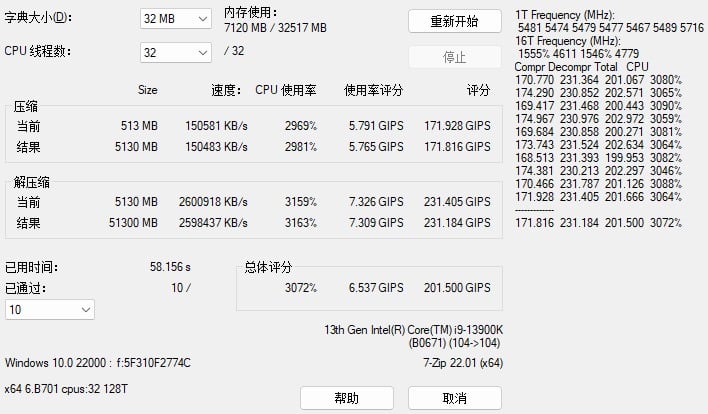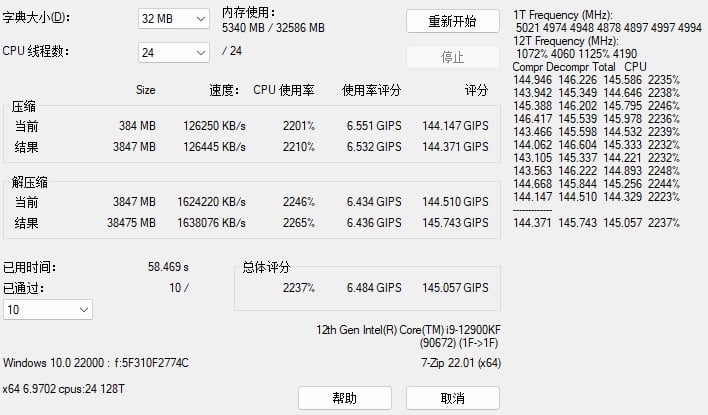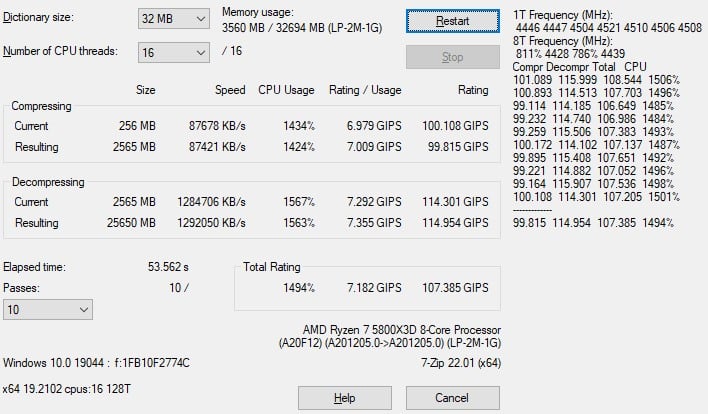Intel Core i9-13900K Zips Past 12900K In 7-Zip Decompression Performance
7-Zip's venerable benchmark utility got a significant step-up with the v22 release of the open-source archiver. While it doesn't actually look any fancier, the no-nonsense test now presents its data in a more relevant format for modern systems, and it also includes a modicum of monitoring data as well. It's this version that Raichu used for his own testing on both a pre-release Core i9-13900K as well as a 12th-gen Core i9-12900K.


The gains in compression tasks aren't that great—in fact, the Raptor Lake part actually performs worse on a per-core basis, for some reason—but the decompression performance is phenomenal, outstripping the older Alder Lake machine by nearly 60% on average across the ten benchmark runs.

The massive improvement in per-core decompression performance is likely in large part thanks to the increased L2 cache size in Raptor Lake. While the upcoming chips aren't expected to have big architectural changes, both P-cores and E-cores are seeing increased cache sizes and clock rates.
These simple changes alone should add up to significant performance improvements in most applications, at least for the desktop Raptor Lake CPUs. Of course, the additional E-cores will help in multi-threaded tasks, too. We'll find out just how much difference the changes make when these parts hit the market, which could be in late September.


